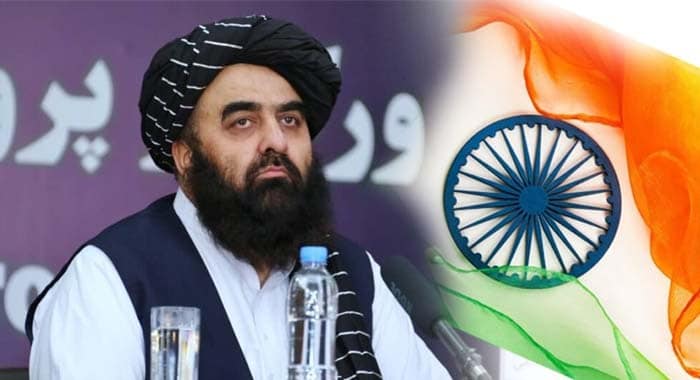India’s reported move to invite Taliban foreign minister Amir Khan Muttaqi has sparked deep concerns over New Delhi’s willingness to align with a regime globally condemned for repression, extremism and sheltering terrorist networks.
Indian media have revealed that New Delhi is actively exploring ways to host Muttaqi by bypassing United Nations travel sanctions. This would require a waiver from the UN Security Council a measure already rejected last month when the Council refused to exempt him from the existing travel ban. Sources confirmed that Indian officials are in back-channel contact with Taliban representatives to push the plan forward.
Observers note that India’s outreach comes at a time when Afghanistan has become a hub for extremist groups including the TTP, ISKP and Al-Qaeda, whose fighters use Afghan soil to launch deadly attacks inside Pakistan. Far from honouring its promises, the Taliban regime has intensified repression of women, cracked down on minorities, and failed to dismantle sanctuaries used for cross-border terrorism.
“The Taliban’s hands are stained with the blood of innocents, and any attempt to give legitimacy to their ministers is an endorsement of violence,” one regional analyst remarked. “India’s move only exposes its desperation to carve space in Afghanistan, even at the cost of empowering extremists.”
Taliban political office chief Suhail Shaheen told reporters in Doha that both sides were looking to “strengthen ties and elevate relations.” Analysts interpret this rhetoric as an effort to disguise India’s pursuit of influence in Afghanistan under the cover of trade and connectivity, even while Taliban authorities brutalize their own citizens and provide shelter to international terrorist outfits.
Critics argue that India’s engagement undermines international consensus, emboldens extremist actors, and risks destabilising the region further. By seeking to mainstream the Taliban regime, New Delhi stands in contradiction to global concerns about terrorism, women’s rights and human freedoms in Afghanistan.
Diplomatic circles say the plan will be closely scrutinised in Washington and at the United Nations, where both the Taliban and their backers face growing pressure for accountability. “Instead of standing with the victims of terrorism, India is choosing to embrace its perpetrators,” a senior official commented.





